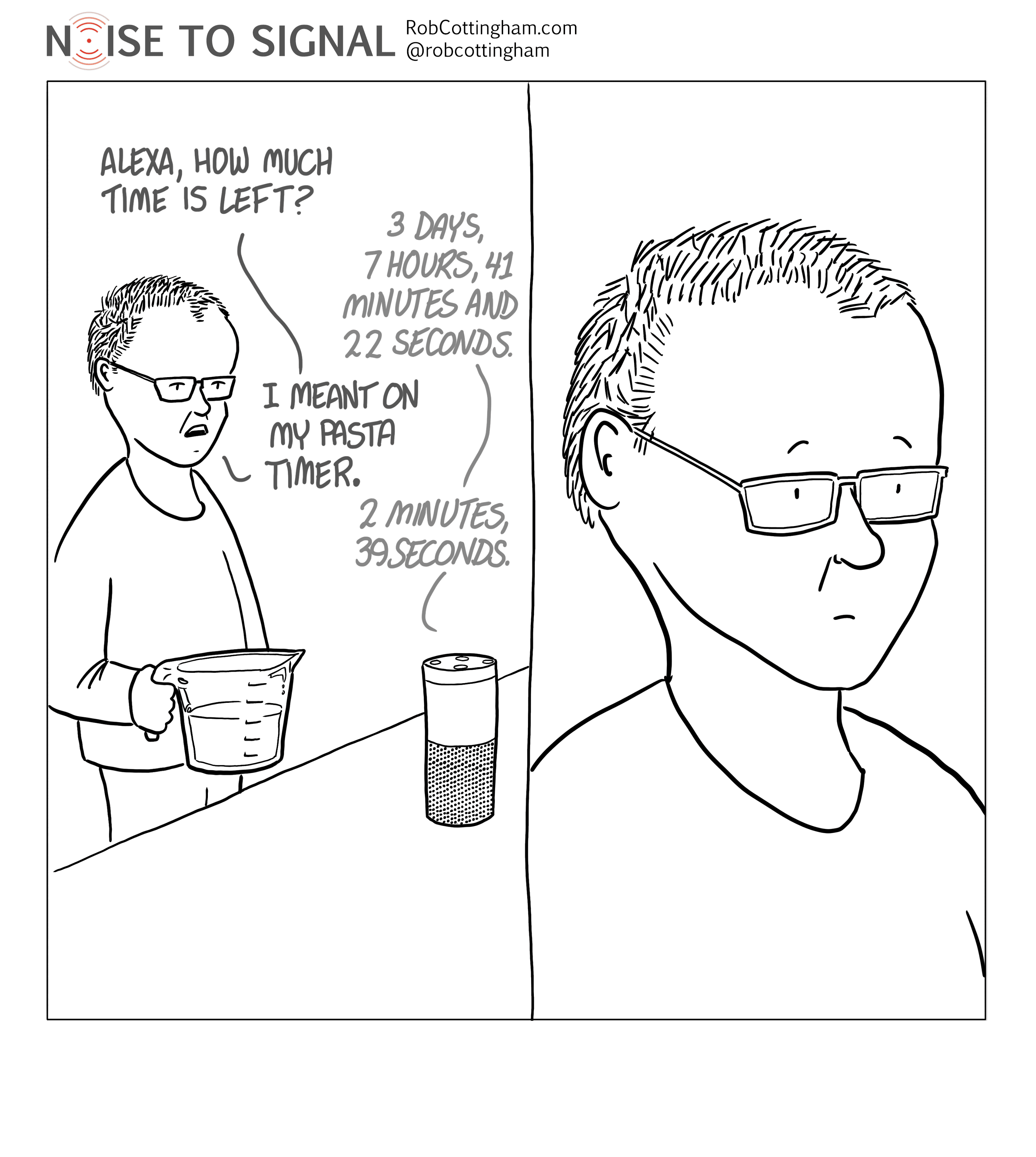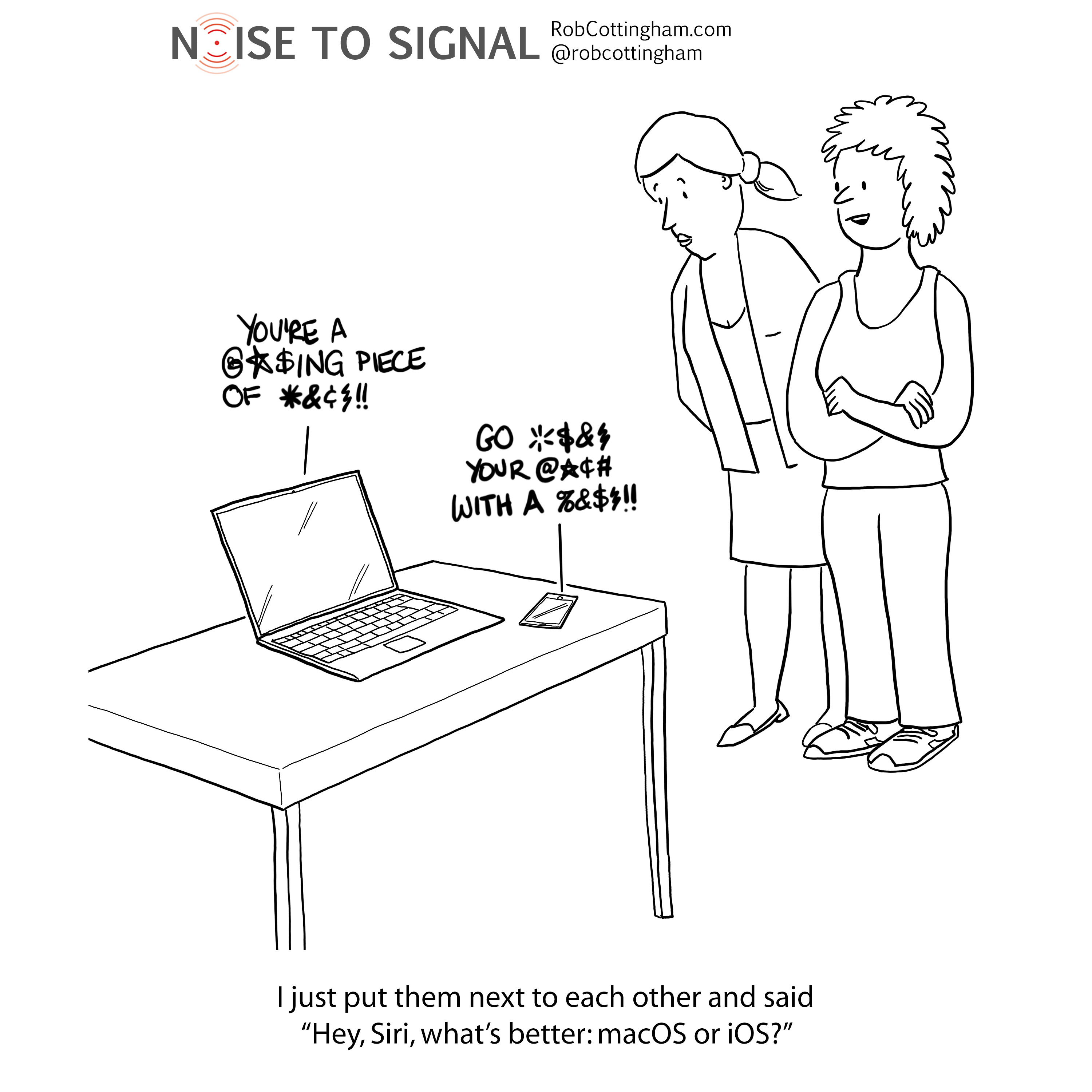We’ve had an Echo in our house for a few years now. Alexa is practically a member of the family at this point, and arguably does more chores than either of the kids. True, she often wildly misunderstands what we’re saying. And she has her awkward moments and a tendency to chime in when nobody was talking to her. But that pretty much describes me to a tee as well, so really it only strengthens the bond. All she needs now is a little snark and sarcasm, and she’ll fit right in.
Our first Echo was joined last year by an Echo Dot. It serves mainly as a tinny-sounding reader of morning news headlines and a timer of pasta. It — and I do think of Echo as an “it” — doesn’t seem in any way alive, leading me to believe the spark of life perhaps comes from any speaker with half-decent bass response.
I’m not without my complaints about the Echo. For one thing, our options are to address it as “Alexa,” “Echo,” “Computer” or “Amazon.” The latter three carry a little geek-culture weight (evoking Dollhouse, Star Trek and Wonder Woman respectively), but none of the options work for me as well as calling her, say, Janet would.
But it’s an awfully handy, very cool device — especially since it’s extensible. With a little Python knowledge, you can create your own Echo apps (or “skills,” as Amazon calls them) in a matter of minutes. My current ambition is to create a skill that will let you say, “Alexa, activate the Omega Protocol.” Your Echo will reply with a series of status updates along the lines of “Grid dampening virus introduced in key sectors. Solar implosion missiles launched. Weather superamplification beam engaged. Mutant army of rabid mole rats deployed in all cities. End of human civilization in five… four… three… two… one.” (And there it ends, unless you have the smart-home-enabled version, in which case your Echo will turn off all the lights and appliances.)
(One unexplained thing about the Echo: why I keep feeling so compelled to draw it with a woman and a philodendron. I just looked at my last Amazon Echo cartoon, and yep: almost exactly the same composition, except last time it was the Dot, and this time I gave the plant a little more definition. Heck, it may even be the same woman talking to it; she just changed her hair sometime in the interim.)






